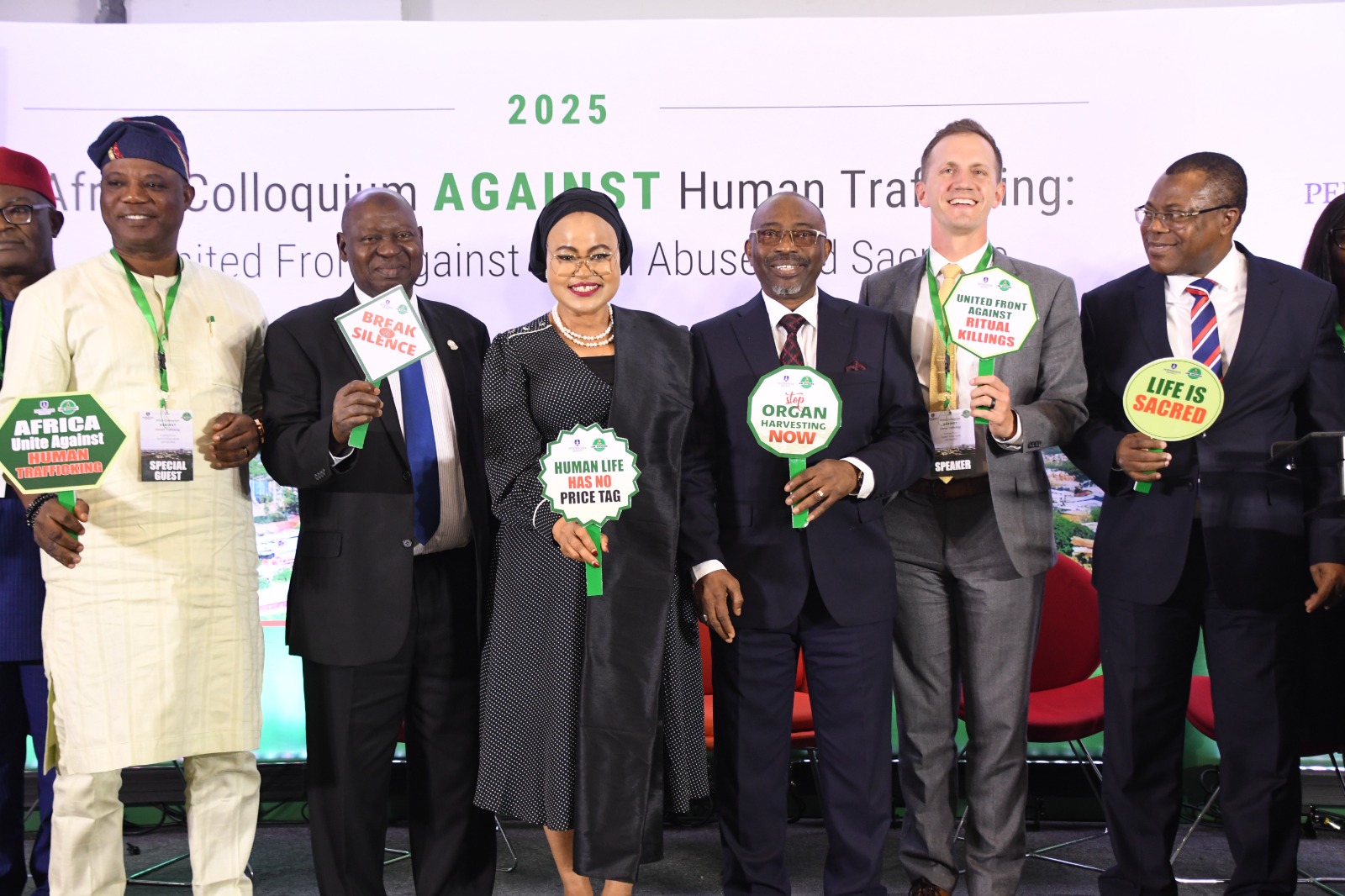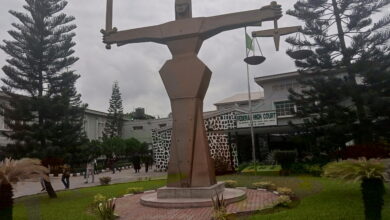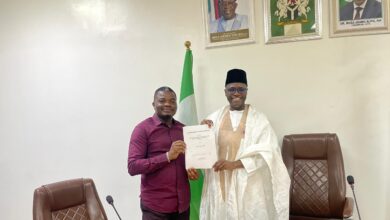
African leaders, justice officials, and faith-based organizations have called for united continental action to end human trafficking, ritual abuse, and human sacrifice across Africa.
The call was made at the maiden African Colloquium Against Human Trafficking jointly organized by the Lagos State Ministry of Justice and Pepperdine University, USA, held in Lagos.
Declaring the three-day event open, Governor Babajide Sanwo-Olu, represented by the Secretary to the State Government, Barr. Abimbola Hundeyin, described human trafficking and ritual abuse as heinous crimes against humanity.
She said the fight demands collective efforts across governments, communities, and faith-based institutions to defeat dangerous myths linking success to taking human life.
The Solicitor-General and Permanent Secretary, Lagos State Ministry of Justice, Mr. Hameed Oyenuga, said the colloquium was a move from conversation to coordinated action, noting that no single institution or country can tackle trafficking and ritual crimes alone.
Delivering the keynote address, Attorney General and Commissioner for Justice, Lagos State, Mr. Lawal Pedro (SAN), said silence had allowed ritual killings and human trafficking to thrive.
He disclosed that between 2022 and 2024, Lagos rescued over 4,700 victims, expanded shelters, and passed the Lagos State Organ Harvesting Prohibition Law (2024) criminalizing the sale of human organs.
Read Also: Nigerian Trafficker Sentence To 5yrs Imprisonment in Ghana For Sexual Exploitation
Pedro, who chairs the Lagos State Task Force Against Human Trafficking, urged African countries to strengthen cooperation, saying traffickers already operate across borders.
Director of the Sudreau Global Justice Institute, Pepperdine University, Prof. Cameron McCollum, said the partnership with Lagos aims to create practical solutions and standard procedures that African countries can adopt immediately.
Representing the NAPTIP Director-General, Mr. Josiah Emerele said ritual trafficking often relies on spiritual coercion rather than physical restraint.
He stressed that combating the menace requires culturally sensitive, context-specific interventions.
The Chief Judge of Lagos State, Justice Kazeem Alogba, described ritual abuse as modern slavery, urging greater community involvement and proper training of investigators.
Representing the Attorney General of the Federation, Mrs. Ezene Nwokolo said cross-border collaboration is essential, noting that traffickers exploit poverty and traditional beliefs to control victims.
Participants at the colloquium agreed on the need to strengthen legislation, improve survivor-centered justice, and integrate faith and community leaders into anti-trafficking campaigns.
The event, the first of its kind in Africa, is expected to produce a continental roadmap of legal and policy frameworks to curb human trafficking and ritual abuse.







